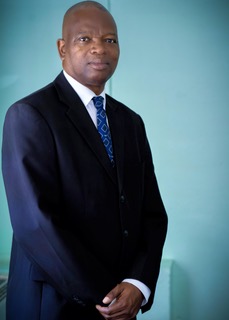The Council of the Antigua and Barbuda Bar Association has noted the reports relating to MP Asot Michael and Chief Magistrate Joanne Walsh carried by the news media over the past week. The Council, having taken the time to gather the relevant facts, makes the following statement. The Facts:
- MP Michael has accused the Chief Magistrate of exceeding her jurisdiction when in a civil matter she issued a bench warrant for his arrest due to his failure to turn up for a court hearing before her. Mr. Michael’s lawyers have argued that the warrant was issued without legal authority.
- MP Michael has also raised the fact that the Chief Magistrate is a Defendant in High Court civil proceedings brought by MP Michael to challenge a request by the English Crown Prosecution Service under the Mutual Assistance in Criminal Matters Act.
- As a result of his arrest MP Michael challenged the impartiality of the Chief Magistrate to hear the matter in the Magistrate’s Court, particularly given certain adverse statements made by the Prime Minister regarding Mr. Michael’s tenure as a Constituency Parliamentary Representative, in the event Mr. Michael ends up in any trouble with the law.
- The Chief Magistrate is a member of the Judiciary, employed by the Government under the current arrangement.
- By Whatsapp message, MP Michael threatened retribution to the Chief Magistrate for issuing the bench warrant and stated he would send a written complaint to the Chief Justice of the Eastern Caribbean Supreme Court, seeking to have her removed from the bench for corruption and skullduggery, which he would substantiate with incontrovertible evidence.
- The Chief Magistrate recused herself, citing the threat.
- MP Michael subsequently settled the Magistrate court matter with the opposing party and issued an apology to the Chief Magistrate.
It is the Council’s view that no litigant should be communicating with a Judge or Magistrate about his or her case by direct private communication, under any circumstances. It is highly irregular and can itself bring accusations of bias and collusion (between the litigant and the Judge or Magistrate) from the opposing party.
It is standard practice in litigation that both parties appear at the same time in open court or Chambers before the Judge or Magistrate and that matters are conducted in the full view of all parties.
This is to ensure full transparency in the proceedings. We take very seriously MP. Michael’s accusations of “corruption and skullduggery” and would call on him to present such evidence to the proper authorities if he does in fact possess same. It is not acceptable for any person, and especially a Member of Parliament, to make such a pointed and defamatory accusation against a Magistrate, without evidence.
We note that Mr. Michael has issued a press release dated September 21st 2020 in which he indicated that he sent a written apology to the Chief Magistrate privately for his actions. It is the respectful view of the Bar Council that having made such a public accusation of corruption against the head of the Magistracy, a private apology is insufficient, and a public apology specifically retracting those accusations is necessary.
A litigant may ask a Judge or Magistrate to recuse himself or herself. A judge should not sit to hear a case in which a fair-minded and informed observer, having considered the facts, would conclude that there was a real possibility that the Judge was biased. In the first instance, it is up to the Judge to recuse himself/herself.
If, however, he or she does not and the litigant feels aggrieved the litigant may appeal the Judge’s decision to the Court of Appeal. If the issue of bias is raised by a litigant, the truthfulness of the accusation is not what is considered by the court, but rather the mere appearance of bias.
It is well documented in case law that even the most tenuous appearance of bias on behalf of a judicial officer should be taken seriously, and the court should lean in favour of recusal to preserve the integrity of the judicial process.
Above all the Chief Magistrate is a member of the Judiciary and the utmost respect must be shown to her at all times. It is only a legacy of history that she is an employee of the government rather than the Chief Justice or a Judicial and Legal Services Commission, a situation which the Bar Association hopes will be rectified in the shortest possible time.
Judges and Magistrates are independent and it is critical for our democracy that they remain independent. To be clear, the Bar Council makes no pronouncement on the merits of the various matters in which MP Asot Michael and the Chief Magistrate are, or were, involved in.
